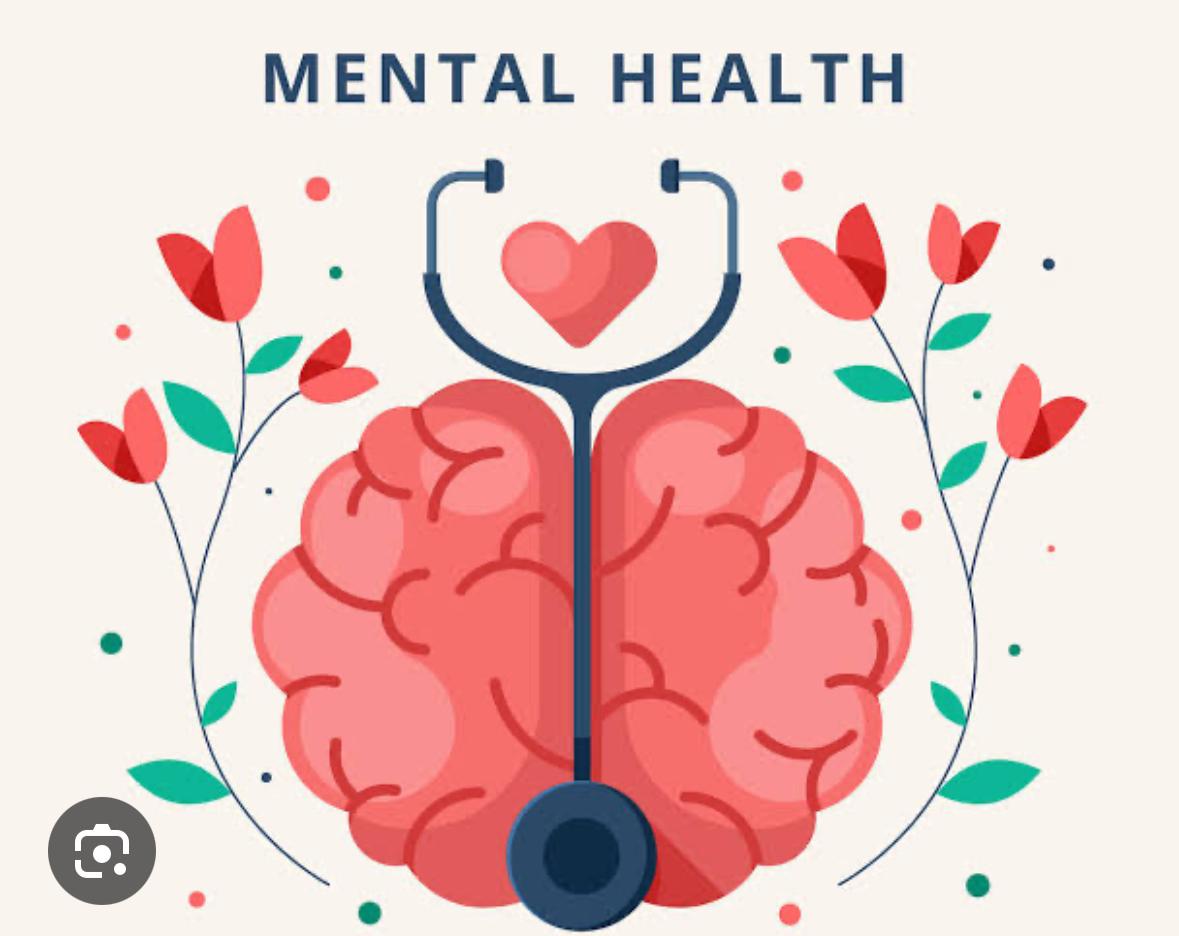Comprehensive Inpatient Mental Health And Wellness Solutions for Effective Therapy
Inpatient psychological health services stand for an important component of the health care system, giving a intensive and structured setting for individuals experiencing serious emotional distress. These solutions employ a multidisciplinary method, incorporating various evidence-based treatments to attend to the intricate needs of clients. Nevertheless, the performance of such thorough treatment extends past prompt stablizing; it likewise includes the shift to outpatient support, a vital stage usually ignored. Exploring the nuances of this continuum reveals significant ramifications for both individual recovery and wider mental wellness end results. What factors genuinely influence this shift, and exactly how can we enhance its efficiency?
Comprehending Inpatient Mental Wellness Providers
Inpatient psychological health services offer essential support for individuals experiencing serious emotional distress that can not be managed efficiently in an outpatient setup. These solutions are designed to supply an intensive level of care in a structured atmosphere, typically within a hospital or specialized center. Patients confessed to inpatient programs normally show severe signs, such as suicidal ideation, severe depression, or psychosis, necessitating day-and-night tracking and treatment.
The admission process normally involves an extensive evaluation by psychological health and wellness specialists, who assess the individual's psychological state, history, and prompt needs. When admitted, patients participate in a selection of healing methods customized to their specific needs, consisting of medicine management, specific therapy, and team sessions. This all natural method aims to maintain the person's problem, promote safety, and foster coping skills.
Inpatient mental health and wellness solutions not just address immediate wellness worries yet additionally offer as a bridge to ongoing care. By offering a regulated environment, these services help with the growth of treatment strategies that can be continued in outpatient setups, hence guaranteeing a continuum of treatment and improving long-term end results for people with complex mental wellness demands.
Key Components of Effective Therapy
Efficient therapy in inpatient mental health and wellness services comprises several vital parts that foster healing and stabilization. First and foremost, a detailed assessment is necessary to determine the individual's particular requirements and difficulties. This assessment informs the development of a customized therapy plan, which works as a roadmap for intervention.
An additional important component is the multidisciplinary group method. Collaboration amongst psychoanalysts, psychologists, nurses, and social workers guarantees that numerous viewpoints add to the patient's treatment, improving the performance of therapy. Evidence-based restorative techniques, such as cognitive-behavioral treatment (CBT) and dialectical behavior treatment (DBT), are likewise integral, supplying organized strategies that deal with maladaptive idea patterns and behavior problems.

Last but not least, a concentrate on aftercare preparation is vital to guarantee a smooth shift to outpatient solutions, minimizing the danger of regression and advertising lasting health. These cumulative components produce an effective treatment framework within inpatient psychological wellness solutions.
Advantages of Comprehensive Treatment

Thorough treatment in inpatient psychological health and wellness solutions provides many benefits that significantly improve individual end results. Among the main benefits is the alternative method to treatment, resolving not just the psychological signs yet also the physical, social, and psychological requirements of individuals. This thorough assessment enables tailored interventions that promote total wellness.
One more benefit is the integration of multidisciplinary teams, which fosters collaboration among healthcare specialists. This joint environment makes sure that clients obtain collaborated treatment, lowering the risk of fragmented treatment and improving interaction among caregivers. Extensive treatment facilitates continuity of services, allowing for smooth transitions from inpatient to outpatient settings, which is essential for lasting healing.

Finally, the structured atmosphere of detailed inpatient care offers a risk-free area for individuals to participate in therapeutic tasks, helping them develop dealing strategies and durability. Collectively, these advantages contribute to much more efficient therapy and enhanced lifestyle for individuals experiencing psychological health and wellness crises.
Evidence-Based Healing Approaches
In the realm of psychological wellness therapy, evidence-based therapeutic approaches play a crucial function in making certain that clients get efficient and scientifically sustained interventions. These techniques incorporate the ideal offered research with medical knowledge and person worths, cultivating a tailored therapy experience that deals with private needs.
Cognitive Behavior Treatment (CBT) is just one of one of the most widely acknowledged evidence-based methods, concentrating on recognizing and altering adverse idea patterns and behaviors. This organized method has actually shown efficiency in treating conditions such as stress and anxiety, clinical depression, and ptsd. Dialectical Actions Treatment (DBT) is particularly reliable for people with borderline character condition, stressing the development of psychological regulation and interpersonal effectiveness skills.
In addition, medicine administration is usually an indispensable component of evidence-based treatment, as psychotropic medications can alleviate signs and boost overall functioning. Collaborative treatment designs, which involve multidisciplinary groups, even more improve the efficiency of inpatient services by guaranteeing thorough analyses and constant tracking.
Ultimately, the combination of evidence-based check here restorative strategies not only advertises positive scientific end results yet also equips clients, cultivating a feeling of agency and resilience in their mental health and wellness journeys.
Transitioning to Outpatient Support
The change from inpatient mental wellness services to outpatient support marks an important phase in a patient's recuperation journey. This duration requires mindful preparation and control to guarantee continuity of treatment and to alleviate the dangers of regression or crisis. Reliable discharge planning should start early in the inpatient stay, entailing a multidisciplinary team that consists of psychiatrists, psycho therapists, registered nurses, and navigate to this site social employees.
Crucial element of a successful change consist of the growth of a thorough aftercare plan tailored to the person's specific demands. This plan should describe follow-up appointments, medication management, and restorative interventions, in addition to identify neighborhood resources and support system that can assist in recurring healing.
Furthermore, patient and family members education and learning is essential throughout this phase. Recognizing the signs of potential obstacles and the significance of sticking to treatment can encourage clients and their support systems.
Normal follow-up and reassessment of the outpatient plan are vital to address advancing difficulties. By fostering a collaborative relationship in between outpatient and inpatient companies, the likelihood of continual recovery boosts, eventually improving the client's top quality of life and decreasing the risk of readmission.

Verdict
In summary, comprehensive inpatient mental wellness services use a vital structure for resolving severe emotional distress through a multidisciplinary technique. By incorporating evidence-based therapies, fostering a structured setting, and advertising family participation, these solutions enhance therapy effectiveness. The emphasis on security and the why not try this out advancement of coping abilities not just help in immediate recuperation yet additionally assists in a smoother transition to outpatient treatment. Inevitably, such comprehensive care is vital for long-lasting psychological health and wellness and health.
The admission process normally involves a detailed assessment by psychological health experts, that examine the person's mental state, background, and prompt needs.Efficient therapy in inpatient psychological health and wellness services makes up a number of vital components that foster recuperation and stabilization.Thorough care in inpatient mental health solutions provides countless advantages that dramatically boost individual end results.The shift from inpatient mental health and wellness services to outpatient support notes an important stage in a patient's recovery trip.In summary, extensive inpatient mental health solutions supply an essential structure for addressing extreme emotional distress with a multidisciplinary technique.